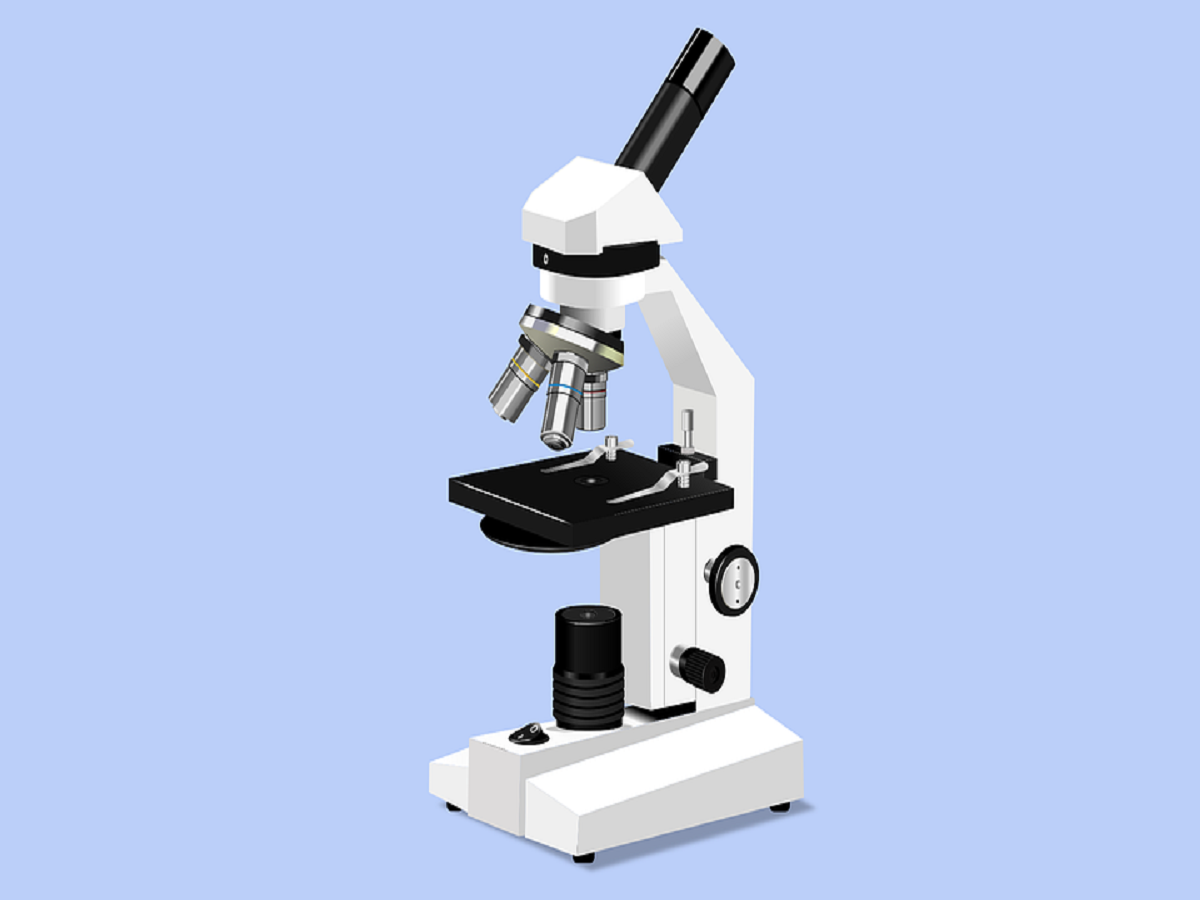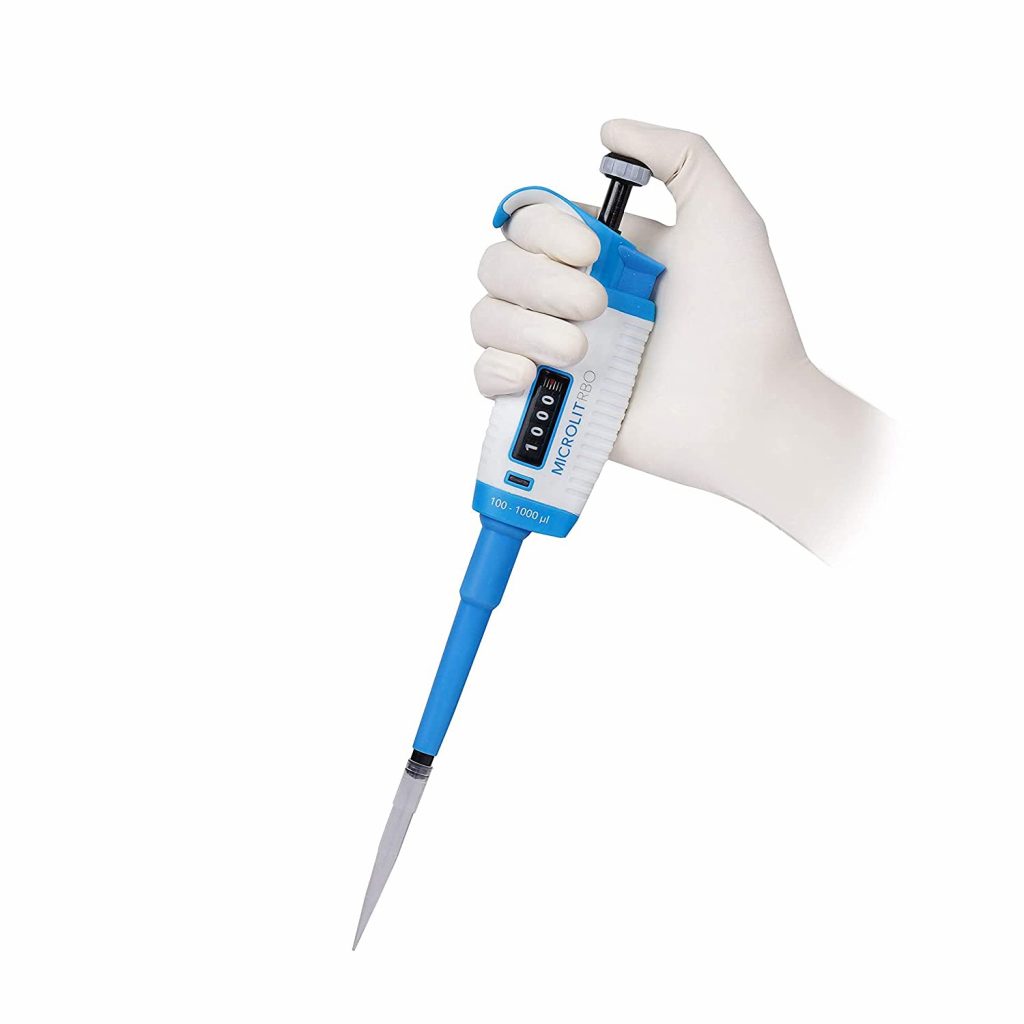Seven Essential Pieces of Lab Equipment for College and High School Courses

What lab equipment does every biology educator need to teach a high school or college survey course?
When you rely on a complete package from Modern Biology, the answer is, not a lot.
Modern Biology takes care of the reagents and test materials you use in every experiment. Your school only needs to budget for some of the basics that classes use again and again every year.
It’s not possible to teach modern biology without microscopes. About 80 percent of biology educators use monocular microscopes for lab work in their survey courses. Binocular microscopes are much less common, used in only about 16 percent of teaching labs. Digital microscopes (3 percent) and stereo microscopes (1 percent) are a relative rarity.
Table of Contents
Microscopes
The shocking fact about the use of microscopes in teaching biology is that, according to a study published by Researchgate, 43 percent of teachers use microscopes as a demonstration tool, and only about 39 percent are able to give their students regular hands-on experiences investigating the topics of discussion. Modern Biology supports a hands-on, experimental approach to give students practice in scientific thinking that they can apply to all of their science courses. And because the Modern Biology curriculum is centered on experiments, not demonstration, it is essential that every class have enough microscopes that every student has a chance to use them.
That doesn’t mean that schools need to buy one microscope for each student enrolled in a class. It’s possible to buy a microscope that can be attached to a camera for wireless sharing with the entire class through their laptops, that is if your students have laptops. It’s also possible to connect a digital camera to a projection screen, so each student in your class does not have to come up with the microscope individually.
Essentials to Use Microscope
If you have microscopes, then you only need to have a small centrifuge, acetic acid, and ethyl alcohol. It’s even better for your class to 3-D print the centrifuge, but of course, that requires a 3-D printer!
You’ll also need PPE for each student. You can get your PPE at a great price from Modern Biology, and, of course, it’s not just biology students who need PPE.
Even though Modern Biology supplies reagents for many of your experiments, every laboratory needs a precision balance. The best balances offer accuracy to 10 mg. They offer fast microprocessing speed and have a USB port. They have adjustable feet and a leveling bubble. They clearly state their maximum capacity. And if they are cared for, they stand up to years of use.
Other Lab Essentials
Every lab needs a set of variable automatic micropipettes, with at least one stand. They are essential for experiments teaching electrophoresis. Your students going on to more advanced courses can benefit from getting com fortable with variable volume, single-channel micropipettes with central buttons, that they may use in later biology courses and medical labs.
Electrophoresis equipment is essential for teaching cell biology at any level. Teaching cell biology also requires microscopes, centrifuges, and a water bath. For teaching molecular biology, you will need microscopes, a centrifuge that can be operated at 3000 g or higher, and a water bath for DNA hybridization. And for a more comprehensive course, you will need accessories, incubators, rotators, analog and digital hotplates, and protein analysis supplies.
What’s on Every Biology Educator’s Shopping List for Stocking the lab?
The shopping list varies accordingly and depends on your requirements. If you don’t use Modern Biology, you will need an array of reagents, experimental substances, and controls. You will need to order, inventory, and keep up with each one. You may need as many 100 reagents in your lab at all times, and you will need to make sure they haven’t expired, and they meet district, state, and federal safety regulations for schools.
Or you can let Modern Biology supply you with the reagents, experimental substances, and control substances you need for every experiment. Every reagent and studied material that Modern Biology supplies is completely non-toxic, thoroughly tested, and compliant with all applicable regulations. There is no risk of students creating illicit substances from your reagents. There’s no need to check out controls from central inventory, putting together all the moving parts of an experiment. Just order your experiments or complete lab courses from Modern Biology for one-stop shopping, a single line item in your budget, and a single approval from your purchasing department.
But you will still need about seven pieces of basic lab equipment. If you rely on Modern Biology to gather the supplies, you need to teach laboratory biology:
Your school will still need to invest in microscopes. Digital cameras can make all the difference in how much ground you can cover in a single class session.
Microscopes will be your big-ticket purchase, with centrifuges right behind for your more advanced courses. You won’t have to spend a lot on a microcentrifuge. You may have to budge a couple of hundred dollars for a scale. Get your simple, nontoxic reagents like alcohol and acetic acid. Stock micropipettes, incubators, hot plates, micropipettes, and additional electrophoresis supplies.
That brings us to an essential shopping list of just seven pieces of equipment and two reagents for basic biology labs if you get the rest of your supplies in all-in-one kits from modern Biology.
Your school may need to make capital investments of about $5000 per lab (that’s for all of your classes) for basic equipment. There may be a need to budget $25 per student per year on expendables. But Modern Biology can cost just $10 per two-student team per laboratory experiment or as little as $39 per student per course with our comprehensive packages.
Stay updated, for more latest information.











